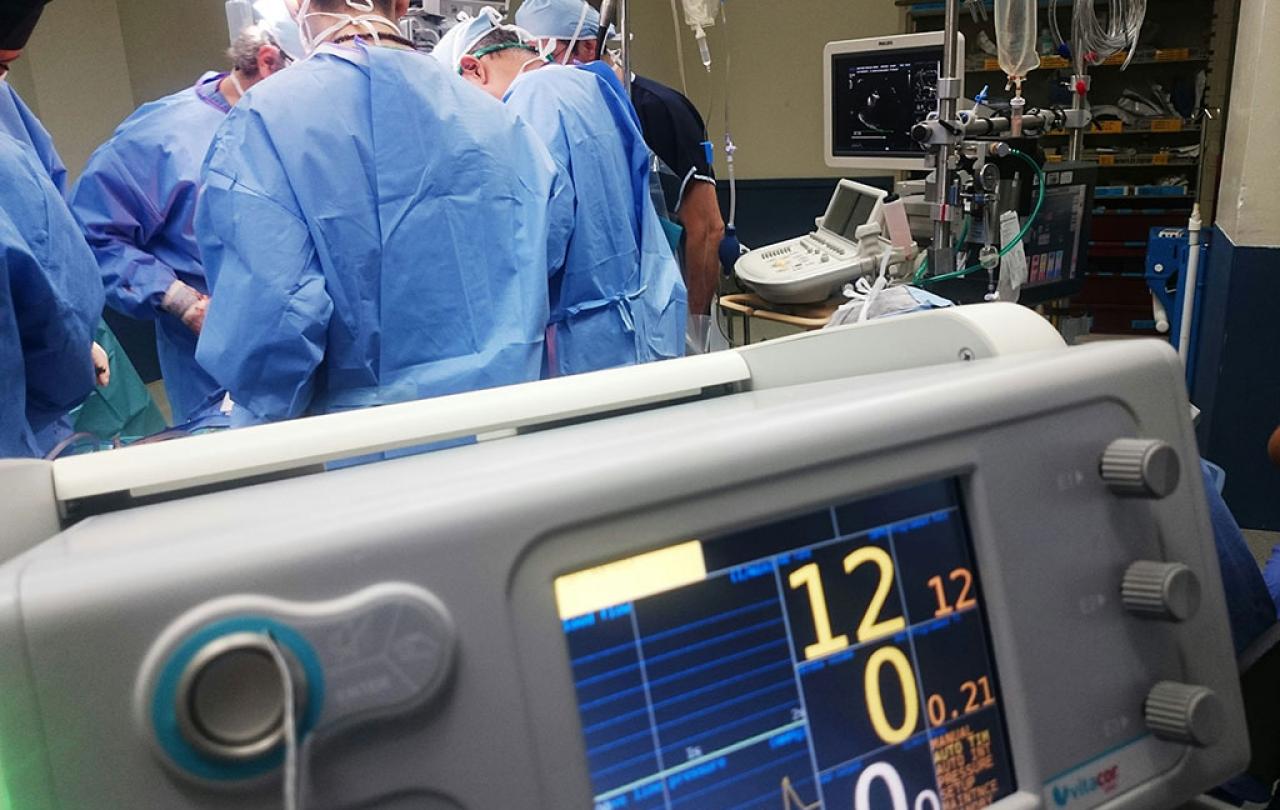
A ‘casual acceptance of infanticide seems to have been not the exception but the rule among both Greeks and Romans in the centuries immediately preceding the birth of Christ.’ That shocking fact about the pagan world’s attitudes towards children, mentioned in David Albert Jones’ The Soul of the Embryo, has been brought to our attention again recently by Tom Holland’s Dominion. Since his book was published, much has been written, even in Seen & Unseen, about the radical alteration of our attitudes towards the weak and vulnerable, especially children, women, and slaves, by the Christian faith’s love for the weak over the strong. The depictions of Christ’s suffering humanity in crucifixes over centuries slowly worked to change the attitudes of even the strong and powerful.
But to think that the Greco-Roman world was entirely callous towards the vulnerable is not true. There is a minority of voices revealing that, even then, there were some opposed to the killing of children in the womb or after birth. There were some who anticipated the revolution of values that the Judaeo-Christian tradition was about to inaugurate. Within that minority of pagan authors, the writings attributed to Hippocrates (who was roughly a contemporary of Socrates) and to his school, in particular, stand out. Translations of his writings from Greek into Syriac, Arabic, and Latin ensured their influence for centuries over Muslim and Christian physicians. The most well-known one, of course, is the Hippocratic Oath, which explicitly forbids causing an abortion using a pessary.
Its description of the moral rules and humane ideals that physicians swear to obey, is partly responsible for the honour and prestige that is still, even today, attached to the medical profession. Medical schools around the world, including 70 percent of them in the UK, still use some version of the Oath in their graduation ceremonies, so that the new medics can make their promise to obey a short summary of the ethical ideal that should guide their practice. The revival of interest in the Oath more recently dates from the post-war period, when the appalling example of medical experimentation in the Nazi regime led the then newly founded World Medical Association to draft the Declaration of Geneva in 1948, since revised multiple times, which have in turn inspired many other versions of the Oath to be written. Some of them are banal and frankly silly, such as one version by the poet David Hart: ‘I will not knowingly do harm to those in my care, I will smile at them and encourage them to attend to their dreams and so hear the voices of their inner strangers’.
Doctors today, in their day-to-day work, rely more often on complex documents detailing their professional obligations. So, what can we and they learn from the Oath?
The Oath includes general promises to use treatments for the benefit of patients and to protect them from harm and injustice, but more specifically it also promises to not give a deadly drug to anyone if asked, nor to suggest giving one to a patient, including a pessary to cause an abortion as I’ve already mentioned. Later the Oath states:
‘Into whichever houses I enter, I will go for the benefit of patients, keeping myself free of any intentional injustice or corruption, particularly in sexual matters, involving both female and male bodies, both of the free and of slaves.’
Already, this tells us, there was an awareness that patients are vulnerable when in the care of another. The physician must not take advantage of their vulnerability, either sexually, or by euthanising them, or by enabling those in despair to commit suicide. A renewed commitment to these rules should be urged, since some doctors continue to abuse their power over patients in these ways, sometimes even with legal permission in countries that permit assisted suicide.
That the Oath was written by a pagan points to the possibility of us all finding our way, without appeal to any holy book or revelation, to an agreement about some basic moral rules that should guide doctors. However, Christianity put its own spin on the Hippocratic Oath, as we can see from a Christian version of it dating from the early Middle Ages. Gone is the reference to swearing by Apollo and Asclepius, whose serpent-entwined rod remains a symbol of medicine today. But, more importantly, the Christian oath forbids causing an abortion by any means, making the promise more definite and explicit. This provides further evidence of the argument mentioned at the beginning of Christianity’s preoccupation with defending the most vulnerable from harm.
Whereas the original Oath envisages belonging to a closely-knit circle of physicians, led by a teacher, from which outsiders are to be excluded, those sections are completely missing from the Christian version. According to W.H.S. Jones, this could be because creating ‘an inner circle of practitioners shows an aristocratic exclusiveness, which is in sharp contrast with the universal brotherhood of Christianity. The relief of pain and suffering … should be tied by no fetters and hindered by no trade-union rules. Christian benevolence should be universal.’ For that reason, Jones thought that the Christian Oath might have been originally written during the earliest centuries of Christianity, when Jesus’ healing missions and the Apostles’ practice of holding all possessions in common had not yet been ‘forgotten or neglected.’
In Westminster Abbey, last year, we saw at the Coronation that the heart of our political system is an exchange of vows between monarch and his people, vows sworn in the belief that to remain faithful to what was promised are gifts given by something above us and beyond our ability to control. Similarly, the weighty responsibilities of marriage have inspired societies across generations to begin married life by pledging solemn promises. Why should we expect anything less from those who take us into their care when we are struck by disease, or facing death?




